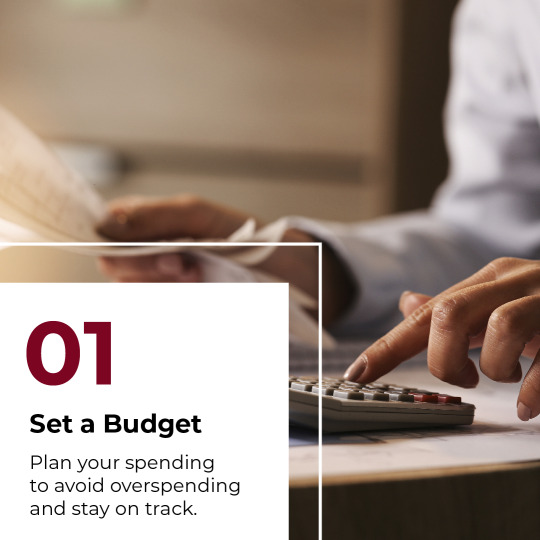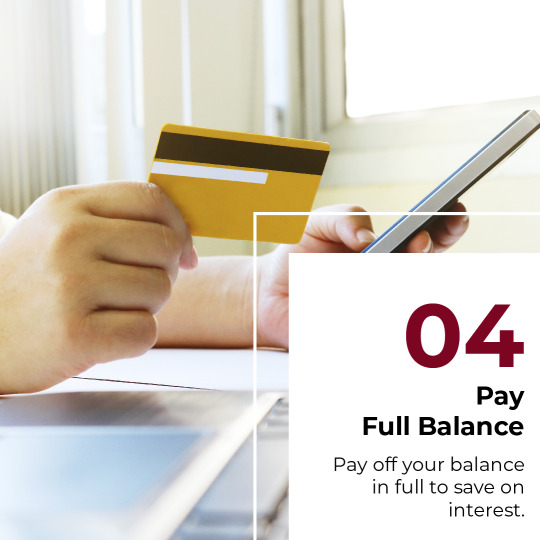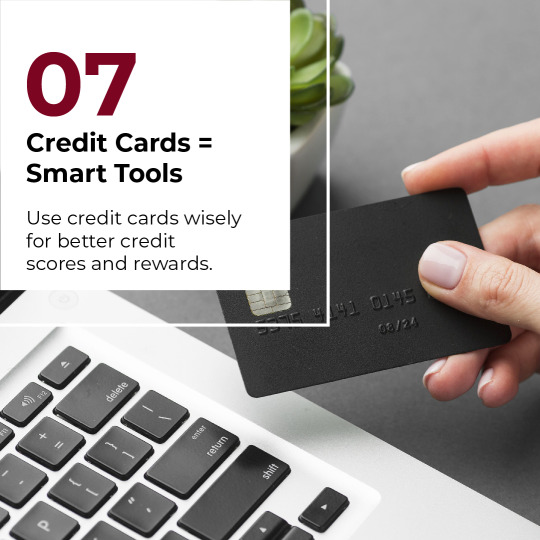#smartspending
Explore tagged Tumblr posts
Text
✧ how to actually save money as a student (without giving up your coffee) ✧




hey lovelies! ♡
now, i'm sure you've noticed by the title that this post is super important - saving money while still enjoying life! i know the struggle of wanting to be financially responsible while not completely giving up the things that make us happy.
here are my tried and true money-saving secrets:
smart shopping tricks
use student discounts everywhere (seriously, just ask!)
shop seasonal sales only
join loyalty programs at your fave stores
use cashback apps for everything
meal prep to avoid impulse food buys
little daily saves that add up
make coffee at home 4 days a week
bring cute homemade lunches
use your student gym membership
walk or bike when possible
share subscriptions with friends
money management basics
track spending in a cute budget app
automate savings (even USD 5 weekly helps!)
use the 24-hour rule for purchases
separate wants from needs
keep an emergency fund
being good with money isn't about restriction, it's about making smart choices!
pro tip: create a "treat yourself" fund - save a little each week for guilt-free splurges!
xoxo, mindy 💫
@glowettee
#moneytips#studentlife#savingmoney#financetips#budgeting#studentbudget#moneysaving#personalfinance#lifehacks#smartspending#manic pixie dream girl#lana del rey#girlblogger#girl blogger#glowettee#it girl energy
39 notes
·
View notes
Text
The Importance of Budgeting Properly to Invest in Yourself: The Only Way to Get Ahead

In the intricate dance of life and finance, there is a fundamental principle that remains consistently true: the key to getting ahead lies in how well you invest in yourself. This investment, however, requires a robust foundation built on prudent budgeting. Imagine the power of taking control of your financial destiny, ensuring that every dollar you earn is a soldier in your army, marching towards a future of personal and professional fulfillment.
Understanding Budgeting
At its core, budgeting is the art and science of creating a plan to spend your money. This isn't merely about restricting your spending or living within your means—it's about having a clear, strategic vision of where your money should go to serve your greatest interests. A well-structured budget acts as both a shield and a sword; it protects you from financial pitfalls and empowers you to seize opportunities for growth and development.
Why Budgeting is Crucial for Personal Investment
Budgeting is the cornerstone of financial stability. Without a budget, it’s easy to fall into the trap of living paycheck to paycheck, never truly understanding where your money goes. This lack of awareness can stymie your ability to invest in yourself. On the other hand, a meticulously crafted budget illuminates your financial landscape, highlighting areas where you can reduce unnecessary expenses and redirect those funds towards meaningful personal investments. For instance, you might discover that by cutting back on daily coffee runs, you can afford an online course that could propel your career forward.
Steps to Create an Effective Budget
Creating an effective budget begins with an honest assessment of your current financial situation. Start by listing all sources of income and meticulously tracking every expense for a month. This exercise will provide a clear picture of your spending habits. Once you have this data, categorize your expenses into essentials (like rent, groceries, and utilities) and non-essentials (like dining out and entertainment). This categorization will help you identify potential savings.
With a clear understanding of your financial inflows and outflows, set realistic financial goals. These goals should include both short-term targets, such as saving for a professional development course, and long-term aspirations, like building a retirement fund. Tracking your expenses becomes crucial at this stage, as it ensures you stay aligned with your goals.
Allocating Funds for Personal Investment
Once you’ve identified areas to cut back on, it’s time to allocate funds towards investing in yourself. This might mean enrolling in a course to acquire new skills, investing in your health through a gym membership, or dedicating time and money to a hobby that brings you joy and fulfillment. Each of these investments contributes to your overall well-being and enhances your capacity to achieve long-term success.
Areas to Invest In Yourself
Investing in education and skills development can yield substantial returns. In our rapidly evolving world, continuous learning is indispensable. Consider the story of Jane, a software developer who, through meticulous budgeting, managed to allocate funds towards obtaining certifications in her field. These new skills not only made her more competent but also opened doors to career advancement and salary increases.
Health and wellness are equally critical areas for personal investment. Your physical and mental health form the bedrock upon which all other achievements are built. Allocating resources towards maintaining a healthy lifestyle—whether through a fitness regimen, nutritious diet, or mindfulness practices—ensures that you have the energy and resilience needed to pursue your goals.
Moreover, investing in personal hobbies and passions can be profoundly rewarding. These activities not only provide a much-needed respite from the daily grind but can also become additional streams of income or significant contributors to your personal growth.
Case Studies and Real-Life Examples
Consider Mike, an accountant who found his passion in photography. Through diligent budgeting, he was able to save enough to purchase a high-quality camera and attend photography workshops. What started as a hobby soon became a lucrative side business, bringing both financial rewards and personal satisfaction.
Then there's Sarah, who used to spend a considerable amount on non-essential items. By reassessing her spending habits and creating a budget, she was able to save money to attend leadership training seminars. These seminars equipped her with the skills needed to climb the corporate ladder, resulting in a significant promotion and pay raise.
Conclusion
In the journey towards personal and professional success, budgeting stands as an indispensable tool. It transforms your financial habits, enabling you to channel your resources into investments that yield the highest returns—investments in yourself. By taking control of your finances, you empower yourself to pursue continuous growth, achieve your goals, and ultimately, lead a fulfilling life. Begin your budgeting journey today, and watch as the seeds of your disciplined efforts blossom into the fruits of success and self-fulfillment.
By embracing the principles of prudent budgeting, you not only secure your financial future but also lay the groundwork for a lifetime of personal and professional enrichment. Remember, the path to getting ahead is paved with strategic investments in yourself—an endeavor that begins with the simple, yet powerful act of budgeting.
Take Action Towards Financial Independence
If this article has sparked your interest in the transformative potential of Bitcoin, there's so much more to explore! Dive deeper into the world of financial independence and revolutionize your understanding of money by following my blog and subscribing to my YouTube channel.
🌐 Blog: Unplugged Financial Blog Stay updated with insightful articles, detailed analyses, and practical advice on navigating the evolving financial landscape. Learn about the history of money, the flaws in our current financial systems, and how Bitcoin can offer a path to a more secure and independent financial future.
📺 YouTube Channel: Unplugged Financial Subscribe to our YouTube channel for engaging video content that breaks down complex financial topics into easy-to-understand segments. From in-depth discussions on monetary policies to the latest trends in cryptocurrency, our videos will equip you with the knowledge you need to make informed financial decisions.
👍 Like, subscribe, and hit the notification bell to stay updated with our latest content. Whether you're a seasoned investor, a curious newcomer, or someone concerned about the future of your financial health, our community is here to support you on your journey to financial independence.
#PersonalFinance#Budgeting#InvestInYourself#FinancialFreedom#MoneyManagement#FinancialPlanning#SmartSpending#SelfInvestment#FinancialStability#BudgetTips#WealthBuilding#FinancialGoals#MoneyMatters#SelfImprovement#EconomicEmpowerment#bitcoin#financial education#financial experts#digitalcurrency#cryptocurrency#blockchain#finance#financial empowerment#globaleconomy#unplugged financial
4 notes
·
View notes
Text
Mastering Your Finances: A Step-by-Step Guide on How to Create a Budget

Creating a budget is a foundational step towards achieving financial stability and realizing your financial goals. Whether you’re aiming to save for a major purchase, pay off debt, or simply gain better control over your finances, a well-crafted budget is an invaluable tool. This comprehensive guide will take you through the essential steps on how to create a budget, empowering you to make informed financial decisions and secure a more secure financial future.
How to Create a Budget?
1. Set Clear Financial Goals
Before diving into the budgeting process, define your financial goals. Whether it’s building an emergency fund, saving for a vacation, or paying off student loans, having specific and measurable goals will guide your budgeting decisions.
2. Gather Financial Information
Collect information about your income, expenses, and debts. Compile pay stubs, bank statements, bills, and any other relevant financial documents. This step provides a comprehensive overview of your financial situation.
3. Categorize Your Expenses
Divide your expenses into fixed and variable categories. Fixed expenses, such as rent or mortgage payments and insurance, remain consistent each month. Variable expenses, like groceries and entertainment, can fluctuate. Categorizing expenses helps identify areas for potential savings.
4. Calculate Your Monthly Income

Determine your total monthly income, including salary, bonuses, freelance income, or any other sources of income. Understanding your monthly income is crucial for establishing a realistic budget.
5. List Your Fixed Expenses:
Write down all fixed expenses, such as rent or mortgage, utilities, insurance, and loan payments. These are recurring costs that remain relatively constant each month.
6. Identify Variable Expenses
Make a list of variable expenses, including groceries, dining out, entertainment, and transportation. Variable expenses can be adjusted based on your financial goals and priorities.
7. Include Savings and Debt Repayment
Prioritize saving and debt repayment in your budget. Allocate a portion of your income to an emergency fund, or retirement savings, and pay off outstanding debts. Treating savings as a non-negotiable expense ensures consistent progress toward financial goals.
8. Factor in Irregular Expenses
Account for irregular or annual expenses, such as insurance premiums, property taxes, or holiday spending. Divide these expenses by 12 to incorporate them into your monthly budget, preventing unexpected financial strain.
9. Subtract Expenses from Income
To better understand how to create a budget, subtract your total expenses from your total income. The result should ideally be a positive number, indicating that your income covers all your expenses. If the result is negative, adjustments may be needed to align your budget with your income.
10. Adjust and Prioritize
If your expenses exceed your income, revisit your budget and identify areas where you can cut back. Prioritize essential expenses and savings goals while minimizing non-essential spending. Adjusting your budget ensures financial sustainability.
11. Embrace the 50/30/20 Rule
Consider following the 50/30/20 rule, where 50% of your income goes to needs (housing, utilities), 30% to wants (entertainment, dining out), and 20% to savings and debt repayment. This rule provides a simple guideline for balanced budgeting.
12. Use Budgeting Tools

Leverage technology to simplify budgeting. Numerous apps and online tools can help you track spending, set financial goals, and visualize your budget in real-time. Choose a tool that aligns with your preferences and makes budgeting more accessible.
13. Track and Review Regularly
Budgeting is an ongoing process, and the answer to “how to create a budget” might differ from person to person. Regularly track your spending against your budget, making adjustments as needed. Reviewing your budget ensures that it remains aligned with your financial goals and adapts to changes in your income or expenses.
14. Emergency Fund Planning
Prioritize building and maintaining an emergency fund within your budget. Having a financial safety net provides peace of mind and protects against unexpected expenses.
15. Seek Professional Advice
If you find budgeting challenging or have complex financial situations, consider seeking advice from financial professionals. Financial advisors can offer personalized guidance to help you achieve your financial objectives.
16. Mindful Spending Habits
Cultivate mindful spending habits as a key aspect of budgeting. Regularly assess your discretionary expenses and identify areas where you can make conscious choices to reduce unnecessary spending. This might include packing lunch instead of dining out or opting for cost-effective entertainment options.
17. Cash Flow Management
Effective budgeting involves managing cash flow strategically. Ensure that you have sufficient funds available for essential expenses and prioritize payment of bills to avoid late fees. Understanding your cash flow cycle helps prevent financial stress and keeps your budget on track.
18. Automate Savings Contributions
Simplify your savings strategy by automating contributions to savings accounts. Setting up automatic transfers ensures that a portion of your income is consistently directed towards savings goals, reinforcing the habit of saving.
19. Celebrate Financial Milestones

Acknowledge and celebrate financial milestones within your budget. Whether it’s reaching a savings goal, paying off a significant portion of debt, or achieving a specific financial target, celebrating successes reinforces positive financial habits and motivates continued progress.
20. Financial Education and Literacy
Invest time in expanding your financial education. Understanding financial principles, investment options, and economic trends empowers you to make informed decisions. Numerous resources, including books, online courses, and workshops, can enhance your financial literacy and contribute to long-term financial success.
Conclusion
Knowing how to create a budget is a fundamental step toward financial empowerment and security. By following these comprehensive steps, you can gain better control over your finances, make informed decisions, and work towards achieving your financial goals. Remember, budgeting is a dynamic process that evolves with your financial journey, so stay committed, stay flexible, and enjoy the benefits of financial well-being.
#BudgetingTips#moneymanagement#SmartSpending#financialwellness#moneymatters#financialliteracy#financialgoals#MoneySmart#wealthbuilding
2 notes
·
View notes
Text

Success is About Smart Choices! Spend Wisely, Scale Up, and Optimize with Experts.
#RealEstateInvesting#PropertyWealth#SmartRealEstate#HomeInvestment#BuildWealth#DreamHome#PropertyGrowth#OptimizeRealEstate#FinancialFreedom#WealthManagement#SmartSpending#InvestmentTips#MoneyMatters#FinanceGoals#Profitability#WealthCreation#ScaleYourBusiness
0 notes
Text
Ultimate Guide to Student Savings in College Station
💰 The Ultimate Guide to Student Savings in College Station! 🎓✨
College life can be expensive, but smart budgeting can make all the difference! From affordable housing to student discounts, we’ve got you covered.
Visit : https://icespiceleaks.com/the-ultimate-guide-to-student-savings-in-college-station/

0 notes
Text
Clear Tech Coaster: Photography Accessory for Creativity

Clear Tech Coaster: A Game-Changer for Photographers
📖To read more visit here🌐🔗: https://techyneedy.com/clear-tech-coster/
#techinnovation#costeffectivetech#techonabudget#affordabletech#techsolutions#smartspending#techtips#budgetfriendlytech#techhacks#cleartechcoster
0 notes
Text
Cori Ann Russell Shares How to Stop Losing Money in Business

Running a business is challenging, and financial struggles can happen to anyone. Dr. Cori Ann Russell, an experienced entrepreneur and health advocate with over 20 years in sports medicine, teaching, and leadership, shares simple strategies to prevent financial losses in your business.
Find Out Where Your Money Is Going
Understanding where your money is being spent is the first step to making smarter financial decisions. Common areas where businesses lose money include:
Unnecessary expenses: Paying for tools, software, or services you don’t use.
Slow cash flow: Late payments from clients can put a strain on your budget.
Underpricing products or services: Charging too little can lead to losses over time.
Inefficient processes: Wasting time on tasks that could be automated or simplified.
High employee turnover: Hiring and training new staff frequently can be expensive.
Reduce Unnecessary Spending
Small expenses can add up quickly. By trimming unnecessary costs, you can save money without affecting the quality of your business. Try these methods:
Cancel unused subscriptions and memberships.
Negotiate better rates with vendors and service providers.
Use free or low-cost marketing strategies like social media.
Reduce waste by monitoring office supplies and expenses.
Improve Cash Flow Management
A steady cash flow is essential for a business to stay strong. Here are ways to improve yours:
Send invoices promptly and follow up on unpaid ones.
Offer discounts for early payments to encourage clients to pay faster.
Keep a financial buffer to cover unexpected expenses.
Monitor income and expenses to avoid surprises.
Set the Right Prices
Pricing your products or services correctly can make a big difference in your profits. Consider these tips:
Research competitors to understand market pricing.
Make sure prices cover your costs and include a profit margin.
Offer premium options for customers willing to pay more.
Test different pricing strategies to see what works best.
Work Smarter, Not Harder
Efficiency can save both time and money. Streamline your operations with these strategies:
Automate repetitive tasks using software.
Train employees to handle multiple responsibilities.
Outsource tasks that don’t require in-house expertise.
Limit unnecessary meetings to boost productivity.
Keep Employees Happy
Replacing employees is expensive, so focus on keeping your team engaged and motivated. Here’s how:
Offer fair salaries and benefits.
Provide opportunities for learning and growth.
Create a positive work environment.
Recognize employees for their contributions.
Avoid High-Interest Debt
Loans and credit can be useful, but high-interest payments can drain your profits. Manage debt wisely by:
Paying off high-interest loans first.
Refinancing debt to get better interest rates.
Only borrowing when necessary.
Sticking to a budget to control spending.
Invest in Effective Marketing
Marketing is essential for growth, but not all strategies work well. Focus on cost-effective approaches like:
Social media marketing and word-of-mouth referrals.
Building an email list to stay connected with customers.
Partnering with influencers or local businesses.
Tracking results to focus on high-performing strategies.
Regularly Review Business Performance
Monitoring your financial health can help prevent future losses. Make it a habit to:
Review financial reports regularly.
Adjust your strategies based on performance data.
Get feedback from customers and employees.
Consult with a financial expert when needed.
Final Thoughts
Losing money in business can be stressful, but with the right approach, you can take control of your finances. Cori Ann Russell encourages business owners to be mindful of spending, optimize operations, and make informed financial decisions. Small changes today can lead to long-term success and profitability.
0 notes
Text
Success Story Spotlight
Success Story Spotlight: A small business cut expenses by 20% simply by reviewing subscriptions, renegotiating supplier contracts, and automating invoicing. Smart financial decisions don’t always mean earning more—they often mean managing better! What cost-saving strategies have worked for you?
0 notes
Text
The 24-Hour Rule: Smart Spending Made Simple!
💡 Smart spending starts with a simple pause! The 24-Hour Rule helps you rethink unnecessary purchases, ensuring financial discipline and better money management. 💰
📢 Have you ever skipped an impulse buy and saved big?
Tell us in the comments! ⬇️
#🔗#SmartSpending#24HourRule#MoneyManagement#DiscoverAndRise#FinancialLiteracy#BudgetingTips#SaveMoney#SmartShopping#ImpulseControl#FinancialFreedom#FrugalLiving#MindfulSpending#WealthMindset#FinancialDiscipline#SavingsGoals#PersonalFinance#ThinkBeforeYouBuy#MoneyMatters#FinancialWellness#MoneyHabits#SustainableFinance#SmartChoices#BudgetWisely#MoneyMindset#MinimalistLiving#FinancialIndependence#SpendSmart#WalletWins#BudgetHacks
0 notes
Text
Financing Your Study Abroad
Budget Smart
Studying abroad is an exciting opportunity that offers academic enrichment, cultural exposure, and personal growth. However, the financial aspect of international education can be overwhelming. Tuition fees, living expenses, travel costs, and miscellaneous expenditures all add up quickly. But with smart planning and the right strategies, financing your study abroad dreams is entirely possible. This guide will break down the costs, explore funding options like scholarships and grants, and provide budgeting tips to help you manage your expenses wisely.
Understanding the Costs of Studying Abroad
Before diving into funding options, it’s essential to understand the different expenses associated with studying abroad. These typically fall into the following categories:
1. Tuition Fees
Tuition fees vary significantly depending on the country, university, and program of study. Some countries, like Germany and Norway, offer low-cost or even tuition-free education for international students, while others, like the United States and the United Kingdom, can be quite expensive. Researching tuition costs for your chosen program is the first step in creating a solid financial plan.
2. Accommodation and Living Expenses
Housing costs depend on whether you choose university dormitories, shared apartments, or private rentals. On-campus housing is often more affordable and convenient, while private rentals provide more independence but at a higher cost. In addition to rent, you’ll need to consider utility bills, groceries, transportation, and other daily expenses.
3. Travel Costs
Flights to and from your study destination, visa application fees, and transportation within the country all contribute to your overall budget. Consider looking for student discounts on flights and transportation to save money.
4. Health Insurance and Medical Expenses
Many universities and countries require international students to have health insurance. Check whether your university provides student health coverage or if you need to purchase private insurance.
5. Books and Study Materials
Textbooks, lab fees, and course materials can be expensive. Some universities offer digital resources or second-hand book options to reduce costs.
6. Miscellaneous and Emergency Expenses
Unexpected costs, such as medical emergencies, visa renewals, or personal expenses, should also be factored into your budget. Having an emergency fund is crucial to avoid financial stress.
Scholarships and Grants: Free Money for Your Education
One of the best ways to finance your study abroad experience is by securing scholarships and grants. Unlike loans, these do not need to be repaid, making them an attractive funding option. Here are some sources of financial aid:
1. University Scholarships
Many universities offer merit-based or need-based scholarships for international students. Research the scholarship opportunities available at your target institution and apply as early as possible.
2. Government-Funded Scholarships
Several governments provide scholarships for international students. Some well-known programs include:
Fulbright Program (USA): Offers funding for graduate students, young professionals, and artists.
Chevening Scholarships (UK): Covers tuition fees, travel, and living expenses for master’s students.
DAAD Scholarships (Germany): Supports students studying in Germany across various fields.
Erasmus+ (EU): Provides financial aid for students studying in European countries.
3. Private and Nonprofit Scholarships
Organizations, foundations, and companies often offer scholarships based on academic excellence, leadership, or community involvement. Websites like Fastweb, Scholarships.com, and Studyportals can help you find scholarships that fit your profile.
4. Country-Specific Scholarships
Some countries offer special scholarships for students from specific regions. For example:
Australia Awards Scholarships for students from developing countries.
Japanese Government (MEXT) Scholarships for international students in Japan.
Canadian Government Scholarships for students from Latin America and Africa.
Budgeting and Managing Living Expenses
Once you’ve secured funding, managing your finances wisely is the key to a stress-free study abroad experience. Here are some practical budgeting tips:
1. Create a Budget Plan
Start by listing all your expected income sources (scholarships, part-time jobs, savings) and expenses (rent, food, tuition, transportation). Use budgeting apps like Mint, YNAB (You Need a Budget), or PocketGuard to track your spending.
2. Open a Student Bank Account
Many banks offer special accounts with low fees and perks for students. Having a local bank account can help you avoid excessive transaction fees and make day-to-day transactions easier.
3. Cut Down on Non-Essential Expenses
Avoid unnecessary spending on luxury items, frequent dining out, or impulse purchases. Cooking at home, using public transportation, and taking advantage of student discounts can help stretch your budget.
4. Find Part-Time Work
Depending on your visa restrictions, you may be able to work part-time while studying. On-campus jobs, tutoring, or freelance gigs can provide extra income without interfering with your studies.
5. Take Advantage of Student Discounts
Many restaurants, stores, transportation services, and entertainment venues offer student discounts. Always carry your student ID and ask about discounts wherever you go.
6. Use Public and Affordable Transportation
Public transport is often cheaper than taxis or owning a car. Look into student passes or discounts for buses, trains, and metro services in your study destination.
7. Buy Second-Hand Books and Supplies
Instead of purchasing brand-new textbooks, check if you can borrow them from the library, buy used copies, or find digital versions.
8. Save on Travel Costs
If you plan to travel during your studies, book tickets in advance, use budget airlines, or look for student travel deals to save money.
Building an Emergency Fund
Unexpected expenses can arise, and having an emergency fund can prevent financial stress. Aim to set aside a portion of your income or savings for emergencies. A good rule of thumb is to have at least three months' worth of living expenses saved up.
Conclusion
Financing your study abroad experience may seem like a daunting task, but with proper planning, research, and financial discipline, it is achievable. Understanding the costs, applying for scholarships and grants, and implementing smart budgeting strategies can make your dream of studying abroad a reality without overwhelming financial stress.
By making informed decisions and adopting a mindful approach to spending, you’ll not only be able to afford your education abroad but also make the most of the incredible opportunities that come with it. So start planning today, apply for funding opportunities, and take charge of your financial future—your global adventure awaits!
#StudyAbroad#StudyAbroadTips#InternationalStudents#Scholarships#StudyAbroadScholarships#BudgetTravel#StudentBudget#FinanceTips#EducationAbroad#StudentLife#CollegeBudgeting#GlobalEducation#UniversityAbroad#MoneyMatters#SmartSpending#AffordableEducation#StudentSuccess#FinancialPlanning#TravelSmart#DreamBigStudyAbroad
1 note
·
View note
Text
Choosing a Credit Card? 🤔💳 Let's Make it Less Confusing!

Hey Tumblr fam, let's talk about something that can feel super overwhelming: choosing the right credit card. There are so many options, and so many different offers, that it can be difficult to know where to even start. But today we are going to break it down, and understand how to choose the right credit card.
I know, you might have seen your friends getting all those rewards and travel perks, and you might want to apply for all the cards. But wait! It is not as simple as just applying for any card that looks appealing. You need to do your research, and you need to select a card that is actually best suited for your personal situation.
First of all, you need to understand what your needs are. Do you want to build credit? Do you want to earn cash back? Do you want travel miles? And once you are clear about your goals, it will be easier for you to choose the right card for yourself. It is also important to understand the basics of how to choose the right credit card.
Then you need to understand the different types of credit cards, and what they actually offer. You have your cash back cards, travel cards, student cards, secured cards, and so on. And each type of card serves a different purpose. So you need to pick the type that suits your needs and your spending habits.
Then, you also need to look at important factors such as the APR, the fees, the rewards programs, and all the terms and conditions. You also need to consider if the intro period is actually worth it for you. It's a whole bunch of different factors, but once you are aware of all these things, you will be in a much better position to pick the right card for yourself.
Choosing the right credit card is not that hard. You just need to be informed, and you need to take control of your finances. You need to select the card that best suits your situation, and your financial goals, and then use it responsibly. Understanding all this will help you how to choose the right credit card for your needs.
Ready to choose the right credit card and stop getting tricked by all the marketing? I've got the full guide for you! Click here to read the full article and start making smart credit card decisions today!
0 notes
Text









Smart Credit Card Tips for Better Finances
Credit cards can be a valuable tool—if used wisely.
Follow these tips to stay financially strong:
- Be aware of interest rates to avoid unnecessary costs.
- Keep your credit utilization low to maintain a healthy credit score.
- Pay your balance on time to avoid debt and late fees.
What’s your best credit card tip? Share in the comments!
#CreditCardTips#FinancialWisdom#SmartSpending#MoneyManagement#DebtFreeLiving#CreditScoreBoost#FinanceGoals#BankingTips#WealthBuilding#SmartMoneyMoves#1lakhbankersby2030
0 notes
Text
Start Budgeting and Planning for Christmas Now: Your Guide to a Stress-Free Holiday Season

As the summer sun blazes and the year speeds towards its end, it might seem premature to start thinking about Christmas. Yet, as any seasoned planner knows, the key to a stress-free and joyful holiday season is starting early. By budgeting and planning for Christmas now, you can avoid the last-minute rush and financial strain that often accompany the festivities. Here’s how to get started:
1. Set Your Budget
The first step in planning for Christmas is setting a realistic budget. Consider all potential expenses, including:
Gifts: Make a list of people you plan to buy gifts for and set a spending limit for each.
Decorations: Factor in any new decorations you might need or want.
Food and Drinks: Consider the cost of holiday meals, baking, and beverages.
Travel: If you’ll be traveling, include transportation and accommodation costs.
Events and Activities: Plan for holiday parties, events, and any special outings.
2. Start Saving Now
Once you have a budget, divide the total amount by the number of weeks remaining until Christmas. This will give you a weekly savings goal. Setting aside a small amount each week can make the overall cost more manageable.
3. Track Your Spending
Keep a close eye on your spending to ensure you’re sticking to your budget. Use budgeting apps or spreadsheets to track expenses and adjust as necessary.
4. Create a Gift List
Start brainstorming gift ideas now. Creating a list early allows you to take advantage of sales throughout the year, avoiding the December rush and higher prices. Keep an eye out for deals and consider DIY gifts to add a personal touch and save money.
5. Shop Smart
Sales and Discounts: Look for sales, discount codes, and cashback offers.
Black Friday and Cyber Monday: These events can offer significant savings on gifts and other holiday necessities.
Buy in Bulk: For items like wrapping paper, cards, and non-perishable foods, buying in bulk can reduce costs.
6. Plan Your Holiday Meals
Plan your holiday menu in advance and start purchasing non-perishable items over the coming months. This spreads out the cost and reduces the last-minute grocery store rush. Consider preparing and freezing some dishes ahead of time.
7. Declutter and Sell
Take the time to declutter your home. Sell items you no longer need or use. This can free up space for new items and provide extra funds for your holiday budget.
8. Get Creative with Decorations
You don’t need to buy new decorations every year. Get creative with DIY projects using materials you already have. Involve your family in crafting unique decorations, which can also be a fun holiday activity.
9. Plan Travel Early
If you’re traveling for the holidays, book your transportation and accommodation as early as possible. Early booking can result in significant savings and more options.
10. Prepare for Unexpected Costs
No matter how well you plan, unexpected expenses can arise. Set aside a small contingency fund to cover any surprises without derailing your budget.
11. Reflect and Adjust
After the holiday season, reflect on your spending and planning process. What worked well? What could be improved next year? Adjust your plan accordingly to make next year’s holiday season even smoother.
Conclusion
Starting to budget and plan for Christmas now can transform your holiday experience from stressful to serene. By taking these steps, you’ll not only enjoy the festive season without the financial hangover but also foster habits that contribute to long-term financial stability and freedom. Remember, the goal is to create a joyful and memorable holiday for you and your loved ones, not to stress over expenses. Happy planning!
By planning ahead, you're taking control of your finances, reducing the likelihood of debt, and setting a positive example for others. Financial freedom starts with small, manageable steps, and holiday planning is a perfect opportunity to practice this. Embrace the spirit of the season with peace of mind, knowing that you’ve prepared well.
Take Action Towards Financial Independence
If this article has sparked your interest in the transformative potential of Bitcoin, there's so much more to explore! Dive deeper into the world of financial independence and revolutionize your understanding of money by following my blog and subscribing to my YouTube channel.
🌐 Blog: Unplugged Financial Blog Stay updated with insightful articles, detailed analyses, and practical advice on navigating the evolving financial landscape. Learn about the history of money, the flaws in our current financial systems, and how Bitcoin can offer a path to a more secure and independent financial future.
📺 YouTube Channel: Unplugged Financial Subscribe to our YouTube channel for engaging video content that breaks down complex financial topics into easy-to-understand segments. From in-depth discussions on monetary policies to the latest trends in cryptocurrency, our videos will equip you with the knowledge you need to make informed financial decisions.
👍 Like, subscribe, and hit the notification bell to stay updated with our latest content. Whether you're a seasoned investor, a curious newcomer, or someone concerned about the future of your financial health, our community is here to support you on your journey to financial independence.
#ChristmasPlanning#HolidayBudgeting#FinancialFreedom#MoneyManagement#Christmas2024#HolidayPrep#BudgetTips#SaveMoney#DebtFreeHolidays#FinancialPlanning#SmartSpending#FestiveSeason#HolidaySavings#FamilyBudgeting#PlanAhead#ChristmasGifts#HolidayStressFree#XmasTips#ChristmasCountdown#HolidayFinanceTips#bitcoin#financial education#financial experts#cryptocurrency#financial empowerment#blockchain#digitalcurrency#finance#globaleconomy#unplugged financial
3 notes
·
View notes
Text
◇ How to Save Money◇
♡ We save money to prepare for the futurehandle surprises and reach our goals ♡

Set a Goal
Know what you’re saving for whether it’s a big purchase, an emergency fund, or just extra cash. Set a specific amount and a deadline.
Track Your Spending
Write down every expense for a week or two. This helps you see where your money goes and spot areas to cut back.
Make a Budget
Plan your money by dividing it into needs, wants, and savings. Stick to your plan to avoid overspending.
Cut Unnecessary Expenses
Skip things like takeout or subscriptions you don’t use. Focus on essentials and treat yourself occasionally.
Save Automatically
If possible, set up automatic transfers to your savings account. Even small amounts, like $1 a day, add up over time.
Look for deals and discounts
Shop during sales, use coupons, or buy in bulk to save on everyday items There are also apps that give you discounts like the lidl app
Avoid Impulse Spending
One thing i do is wait 24 hours before buying something i don’t really need. This helps curb impulse purchases.
Public Transport/Walking.
If possible, walk or use public transport instead of driving or taking taxis. (Great for fitness, too)
50/30/20 rule
50% Needs : Essential expenses like rent, utilities, groceries, and transport.
30% Wants : Non-essential expenses like entertainment, dining out, or hobbies.
25% Savings : Set aside for future goals or an emergency fund.
#money#money goals#finace#finacialfreedom#moneytips#budgeting#budgetingtips#budgeting101#savemoney#savemoneylivebetter#moneymatters#investment#investing#invest in yourself#investinyourfuture#secure the bag#moneymoves#money money money#wealth#wealthy#wealthymindset#frugalliving#smartspending#money management#moneymanifestation#moneymindset
0 notes
Text
Step-by-Step Process for Deactivating Flipkart Pay Later

If you no longer want to use Flipkart Pay Later but aren’t sure how to deactivate it, this guide will walk you through the entire process.
Also Read : How to Close Flipkart Pay Later.
Step 1: Sign In to Flipkart
To deactivate your Flipkart Pay Later service, start by signing in to your Flipkart account through the app or website.
Step 2: Go to Your Account Settings
Once logged in, navigate to the “Payments” section or the “Account Settings” area where you can find your financial services details.
Step 3: Check Your Current Balance
Before you deactivate the service, make sure that there is no outstanding balance on your account. If there is an unpaid amount, you must settle the dues before deactivating the service.
Step 4: Disable Flipkart Pay Later
After clearing any dues, you can proceed to the Flipkart Pay Later section. Look for the option labeled "Disable Flipkart Pay Later" or “Close Account”. Clicking on this option will initiate the deactivation process.
Step 5: Verify Your Identity
To ensure security, Flipkart will send an OTP to your registered email or phone number. Enter the OTP in the provided space to verify your identity and proceed.
Step 6: Wait for Confirmation
After completing the verification step, Flipkart will process your request. You will receive an official confirmation via email or through the app once your Flipkart Pay Later service is deactivated.
Conclusion
Deactivating Flipkart Pay Later is a simple process that ensures you stop using the service. Just follow these steps, and you will no longer be able to use Flipkart Pay Later for future purchases. If you prefer to reactivate the service later, you can contact customer support.
#CloseFlipkartPayLater#DisableFlipkartPayLater#FlipkartPayLaterClosure#PayLaterDeactivation#FlipkartAccountManagement#StopUsingFlipkartPayLater#ManageYourFinances#FlipkartPayLaterHelp#DeactivateFlipkartPayLater#FinancialControl#FlipkartSupport#BNPLClosure#PayLaterOption#SmartSpending#ClosePayLaterAccount
1 note
·
View note
Text
경제적 자유로 가는 길, 생활비 절약의 비밀
0 notes